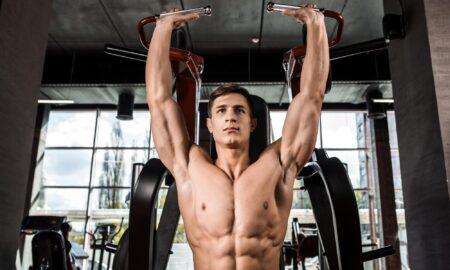Q: I’ve had shoulder tendinitis in the past but got some good soft-tissue treatment, so now after a long layoff I’m able to start pressing again. To prolong the health of my shoulders, should I perform dumbbell bench presses rather than barbell bench presses?
A: Virtually any variety in your selection of pressing exercises will help your shoulders stay healthy. Performing barbell bench presses in the same manner, week after week, year-round is a sure prescription for overuse injuries. That holds true with any muscle group—if you perform barbell curls year-round, there’s a good chance that you’ll eventually develop biceps tendinitis.
Except for beginners, who can usually progress for longer periods on the same program, I usually change my clients’ exercises every six training sessions. If you’re training your chest three days a week, you could perform bench presses for two weeks, followed by incline presses for two weeks, dips for two weeks and then perhaps use a standing horizontal press leverage machine such as the Hammer Jammer or the BFS Unilateral Power Press. Those standing units are especially shoulder friendly because your shoulder blades can move freely during the exercise, as opposed to the way their movement is restricted on a bench press. Horizontal presses done with a functional trainer are another alternative, but it’s difficult to use a significant amount of weight on them, and it’s awkward to set up that type of machine to perform the exercise, especially when compared to the leverage machines.
So let’s talk about dumbbell bench presses. During the setup for the dumbbell press, when you’re in the bottom position, externally rotate the dumbbells. That will increase the stretch on the shoulders. As you press, slightly rotate the dumbbells internally; the shifting positions of the handles during the exercise will make a diamond pattern. Long term, that type of rotation will be a much more natural movement. Also, with the conventional style, the range of motion is restricted, especially with heavy weights, because the plates will touch your chest.
Editor’s note: Charles Poliquin is recognized as one of the world’s most suc-cessful strength coaches, having coached Olympic med-alists in 12 different sports, including the U.S. women’s track-and-field team for the 2000 Olympics. He’s spent years researching European journals (he’s fluent in English, French and German) and speaking with other coaches and scientists in his quest to optimize training methods. For more on his books, seminars and methods, visit www.CharlesPoliquin.net. Also, see his ad in the magazine. IM




















You must be logged in to post a comment Login